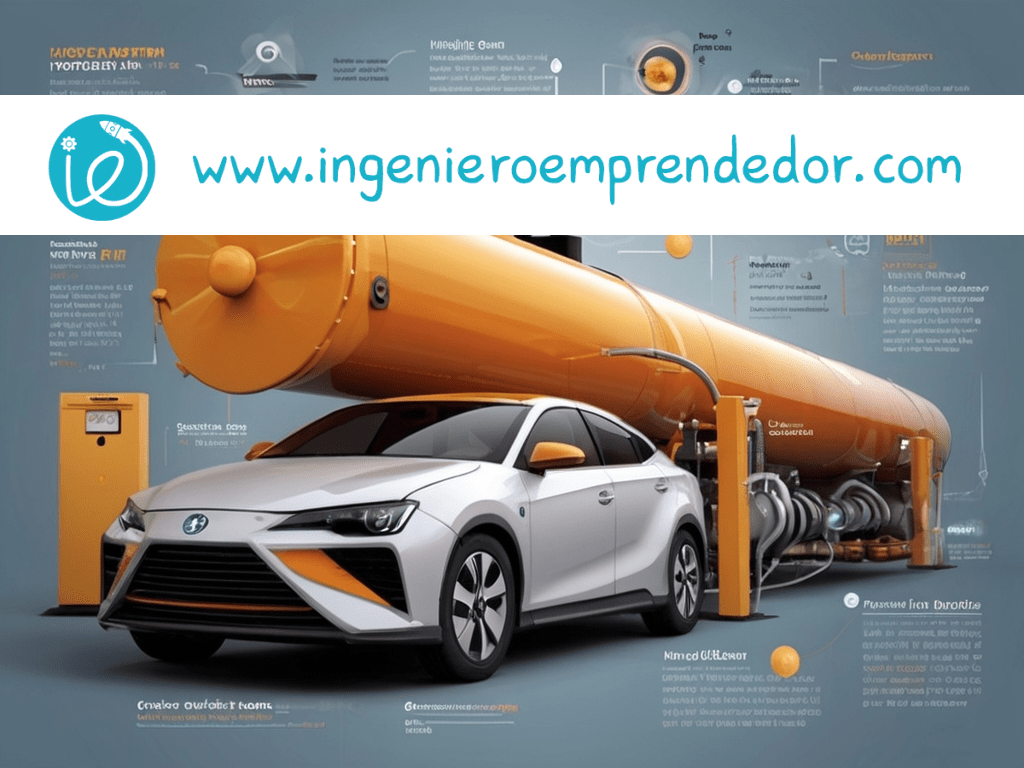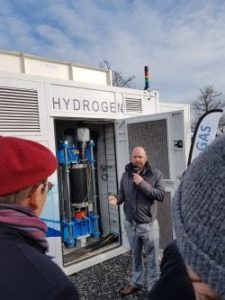Injecting Innovation: Hydrogen in Your Internal Combustion Engine

Introduction:
As a hydrogen expert, I love talking about this fuel of the future. But today, I want to address a crucial topic: What happens if you introduce hydrogen into your internal combustion engine? The short answer is: Don’t. But the long answer, filled with science and excitement, is much more interesting.
As a technology and mobility enthusiast, you’ve probably wondered about the possibilities of introducing hydrogen into your internal combustion vehicle. While this may sound like science fiction, there are some interesting realities worth exploring.
Demystifying Hydrogen for Conventional Cars
First, it’s essential to understand that internal combustion engines are designed to run on liquid fuels, like gasoline or diesel. Introducing hydrogen into this scenario requires considerable adaptations.
Why is it not a good idea?
Internal combustion engines are designed to work with gasoline, diesel, or natural gas. These fuels have specific characteristics that allow for controlled and efficient combustion. Hydrogen, on the other hand, is a highly flammable and lightweight gas. Its behavior in a traditional combustion engine is unpredictable and can be dangerous.
The consequences:
- Uncontrolled pressure: Hydrogen burns much faster than gasoline, potentially causing an uncontrolled increase in pressure inside the engine. This can lead to severe engine damage and even explosions.
- Incomplete combustion: The air-hydrogen mixture inside the engine may not be ideal, leading to incomplete combustion. This generates harmful emissions and reduces engine efficiency.
- Engine damage: Hydrogen can erode engine components, such as valves and pistons, over time. This shortens the engine’s lifespan and increases maintenance costs.
The Infrastructure Challenge
To start, refueling infrastructure is a critical factor. Unlike dedicated hydrogen cars that have specific systems, modifying a conventional car involves finding an efficient and safe way to inject hydrogen into the combustion system.
Necessary Technical Adaptations
Additionally, the engine and other vehicle components would require substantial modifications to ensure safe and efficient performance. This would include adjustments to the compression ratio, injection systems, and possibly the use of specific materials to handle hydrogen’s characteristics.
Hydrogen Combustion
In theory, hydrogen combustion is cleaner than that of conventional fossil fuels. When hydrogen reacts with oxygen in the engine, the main byproduct is water, eliminating greenhouse gas emissions and reducing air pollution.
Challenges to Overcome
However, the challenges go beyond mechanical adaptations. Safety is a central concern. Handling hydrogen, which is highly flammable, requires extreme precautions to avoid dangerous situations.
Efficiency: Is It Worth It?
In terms of efficiency, internal combustion engines are not the best suited to take full advantage of hydrogen’s properties. Fuel cells and engines specifically designed for this gas are usually much more efficient.
Hydrogen Experiments:
While using hydrogen in a traditional combustion engine is not recommended, there are research projects exploring its use as an alternative fuel. These projects usually involve significant modifications to the engine to adapt it to the characteristics of hydrogen.
Remember:
- Safety is paramount.
- Hydrogen is not a drop-in fuel for your traditional combustion car.
- Research projects are exploring the use of hydrogen in combustion engines, but it is not yet a commercially viable technology.
Conclusion: More Than a Modification, a Revolution
In summary, introducing hydrogen into your internal combustion car is more than a simple modification; it’s a technical revolution. While the idea is exciting, the technical, safety, and economic feasibility challenges are crucial aspects to consider.
The transition to hydrogen-powered vehicles is underway, but mainly through technologies designed from the ground up to make the most of this powerful element. So, could you transform your conventional car into a hydrogen vehicle? The answer lies at the intersection of science and imagination.

























